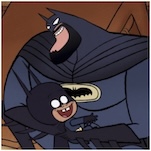Stephanie Kegan Unravels a Bomber’s Family in Golden State
Photo by Jennifer Hartling“The Bay Area was in the midst of an autumn heat wave, hot, dry and unnatural. The air electric against my skin, I had the sense that a single match could ignite us all…”
In Golden State, Natalie Askedahl has a charmed life. A happy marriage. Two sweet daughters. A career she loves. But her perfect life shatters when a bomber targets universities across California, and the bomber’s manifesto reads like the last letter she received from her estranged brother, Bobby. Torn between family loyalty and protecting others, Natalie finds her life spiraling out of control as is accused of orchestrating the violence.
Paste caught up with Golden State author Stephanie Kegan to discuss her inspiration for the book, mental illness and capital punishment.
![]()
-

-

-

-

-

-

-

-

-

-

-

-

-

-

-

-

-

-

-

-

-

-

-

-

-

-

-

-

-

-

-

-

-

-

-

-

-

-

-

-








































